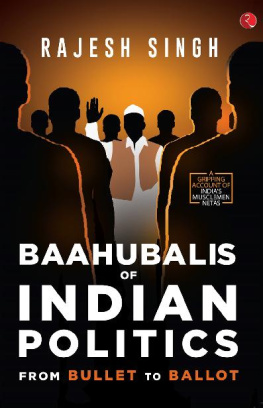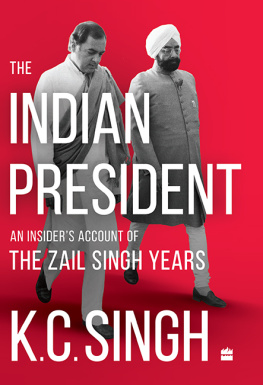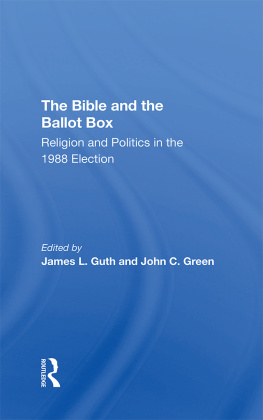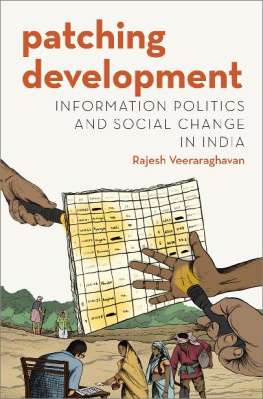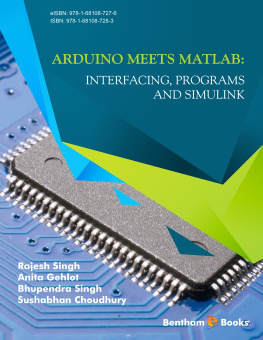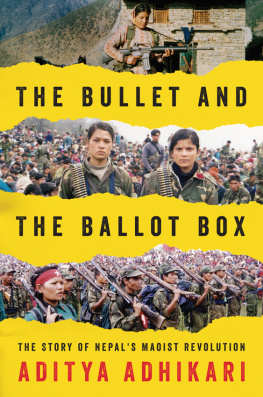Rajesh Singh - Baahubalis of Indian Politics: From Bullet to Ballot
Here you can read online Rajesh Singh - Baahubalis of Indian Politics: From Bullet to Ballot full text of the book (entire story) in english for free. Download pdf and epub, get meaning, cover and reviews about this ebook. year: 2020, genre: Detective and thriller. Description of the work, (preface) as well as reviews are available. Best literature library LitArk.com created for fans of good reading and offers a wide selection of genres:
Romance novel
Science fiction
Adventure
Detective
Science
History
Home and family
Prose
Art
Politics
Computer
Non-fiction
Religion
Business
Children
Humor
Choose a favorite category and find really read worthwhile books. Enjoy immersion in the world of imagination, feel the emotions of the characters or learn something new for yourself, make an fascinating discovery.
- Book:Baahubalis of Indian Politics: From Bullet to Ballot
- Author:
- Genre:
- Year:2020
- Rating:5 / 5
- Favourites:Add to favourites
- Your mark:
- 100
- 1
- 2
- 3
- 4
- 5
Baahubalis of Indian Politics: From Bullet to Ballot: summary, description and annotation
We offer to read an annotation, description, summary or preface (depends on what the author of the book "Baahubalis of Indian Politics: From Bullet to Ballot" wrote himself). If you haven't found the necessary information about the book — write in the comments, we will try to find it.
Baahubalis of Indian Politics: From Bullet to Ballot — read online for free the complete book (whole text) full work
Below is the text of the book, divided by pages. System saving the place of the last page read, allows you to conveniently read the book "Baahubalis of Indian Politics: From Bullet to Ballot" online for free, without having to search again every time where you left off. Put a bookmark, and you can go to the page where you finished reading at any time.
Font size:
Interval:
Bookmark:
BAAHUBALIS
OF
INDIAN
POLITICS
Rajesh Singh is the author of the critically acclaimed book, Portraits of Hindutva: From Harappa to Ayodhya . He is a freelance analyst of politics and public affairs and a regular contributor to PGurus and the New Delhi-based leading think tank, Vivekananda International Foundation. He had a nine-year stint with the Delhi-based The Pioneer newspaper, where he functioned first as deputy national bureau chief and later as opinion editor. He also served as media advisor to Goa Chief Minister Manohar Parrikar in 200203, during which period he was concurrently director, Department of Information and Publicity, Government of Goa. He is presently based in Delhi-NCR.
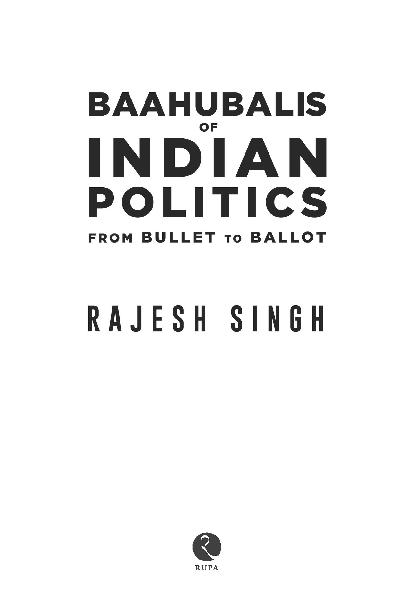
Published by
Rupa Publications India Pvt. Ltd 2020
7/16, Ansari Road, Daryaganj
New Delhi 110002
Copyright Rajesh Singh 2020
All rights reserved.
No part of this publication may be reproduced, transmitted, or stored in a retrieval system, in any form or by any means, electronic, mechanical, photocopying, recording or otherwise, without the prior permission of the publisher.
The views and opinions expressed in this book are the authors own and the facts are as reported by him which have been verified to the extent possible, and the publishers are not in any way liable for the same.
ISBN: 978-93-89967-75-3
First impression 2020
10 9 8 7 6 5 4 3 2 1
The moral right of the author has been asserted.
This book is sold subject to the condition that it shall not, by way of trade or otherwise, be lent, resold, hired out, or otherwise circulated, without the publishers prior consent, in any form of binding or cover other than that in which it is published.
To my grandchildren,
Kavya and Vikrant
CONTENTS
INTRODUCTION
If Indian politics had been flat, possibly many musclemenpoliticians, euphemistically called baahubalis, would have fallen off the edge and disappeared. But like the earth, it is not, and they remain in circulation like fake currencykhote sikkecamping in one party on one day and in another the next. When they are proceeded against by one political organization, the rival group cries out in protest, and when these elements are protected, the opponents agitate against the patronage. The merry-go-round is perennial. When, on a rare occasion, all doors are shut, our baahubalis strike out on their individual strength and soon compel the political system to recognize their worth. Isolation does, at times, dent the stature and influence of a gangsterneta, but this has generally proved to be a temporary setback; you cannot put down a baahubali for long. He will find a way, either on his own or with the complicity of the political setup. If he cannot contest because he is too tainted to be accepted, he will have his spouse or some other close relation to be his proxy in an electoral battle. He often finds help from political parties in this endeavour. Elections in the past, including the just-held 2019 Lok Sabha polls, have seen wives or widows of dons being fielded. While they have not always succeeded, they havent always failed either.
So, who is a baahubali? A Google search inevitably takes one to a popular eponymous film. But it also informs that a baahubali is a person who uses muscle power and various other illegal or extra-legal means to get his way in public life. If such a person is in politics, then its a given that the mans political nature, too, would constitute a slew of dubious methods exercised to promote wrongful interests. It is technically possible that perfectly law-abiding people can turn baahubalis after entering the political arena, but an overwhelming number of cases demonstrate that people become baahubalis first and politicians later. Indeed, the muscleman-reputation works as a handle to exercise the levers of political power. For all the dread and fearand respect either as a consequence of the first two or as a result of their social workthat they command, the dons have realized the benefits of not just being close to politicians but being politicians themselves.
Like a politician, the baahubali comes in various hues. There are those who have made a name for themselves through relatively minor acts of illegality, such as unlawful assembly in a public place or roughing up a government servant or using money power essentially to influence decision-making in their favour. But the dangerous ones are those who have grave criminal charges slapped against themof issuing threat to life, extortion, kidnapping, rape and murder. Proven in a court of law or otherwise, these allegations serve to create a dominating image of the baahubali; in fact, the more serious the allegation, the more dominant is the persona and the more colourful is his career. For the purpose of this book, the focus will be on these types, the others being dwarfs in comparison and mere foot soldiers of the bigger dons. The baahubalipoliticians are like mafia figures who follow their own set of rules and establish codes of conduct which others can breach if they desire to invite undesirable consequences upon themselves. They have their committed band of foot soldiers who can slash, burn and kill if ordered. For the baahubali, the longer and graver the list of crimes associated with him, the easier it is for him to spread his tentacles. Like the mafia, which flourishes in various parts of the world, the baahubalis in India have prospered primarily because of complicity of the mainstream influencers in society, be they academicians, the media, established political parties, the police or the administration in general. Put together, they play a major role in creating a larger-than-life image of the don, which then gets entrenched in the public consciousness. However, the hollowness is exposed when someone dares to puncture the balloon, as has happened in a few cases.
The term mafia is, of course, an import, and many Indian baahubalis would baulk at being associated with such an organized criminal network. They see themselves as social activists, givers of speedy justice to the needy, demolishers of red-tapeism that characterizes an administrations functioning to the detriment of the common man, and, in the Indian context, protectors of sectarian interestscaste, community, region and religion. This is more so in the case of the caste-and-religion-ridden politics of Uttar Pradesh and Bihar. Thus, a Pappu Yadav presents himself as a warrior for backward class (Yadav) empowerment, an Anant Singh emerges as a voice of the Bhumihar community, a Raghuraj Pratap Singh aggressively bats for the Rajputs, a Mohammed Shahabuddin is willingly positioned as the messiah of the Muslims and an Amarmani Tripathi becomes an essential tool to strike a chord with the Brahmin community and simultaneously eliminate rival Brahmin contenders in the political space. And yet, their methods in the core are very similar to that of the mafia: persuade, intimidate, eliminate. They manage extortions, run protection rackets, arm-twist organizationseven governmentrun onesto award lucrative contracts to their proxies, arbitrate between disputes and broker and influence pacts that have no legal sanction and help create situations to save or sink political regimes. The Indian baahubalipolitician fits well with the etymological description of the term; it derives from the Sicilian mafiusu, which roughly translates as one with a swagger. It is said that mafia is derived from marfud (rejected) or from mahyas (aggressive boasting). In recent decades, the word mafia has come to be applied readily to all sorts of organized illegal activities and conduct that have nothing to do with the traditional understanding of the word mafia. The Italian judge, Giovanni Falcone, who spent a lifetime tackling the rise of the Sicilian mafia and was assassinated by one of the mafia groups in 1992, had once remarked that, while in the early days people were not too willing to even utter the word mafia, it had now become an overused term. Because a definitive description of what constitutes the mafia is hard to come by, the term has become popularly associated with the Indian baahubalipoliticians too, and their extra-legal structures and methods.
Next pageFont size:
Interval:
Bookmark:
Similar books «Baahubalis of Indian Politics: From Bullet to Ballot»
Look at similar books to Baahubalis of Indian Politics: From Bullet to Ballot. We have selected literature similar in name and meaning in the hope of providing readers with more options to find new, interesting, not yet read works.
Discussion, reviews of the book Baahubalis of Indian Politics: From Bullet to Ballot and just readers' own opinions. Leave your comments, write what you think about the work, its meaning or the main characters. Specify what exactly you liked and what you didn't like, and why you think so.

